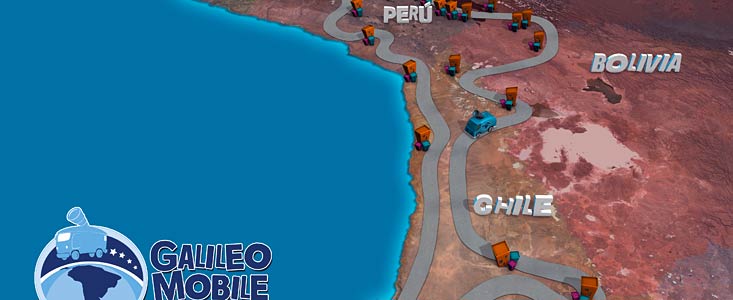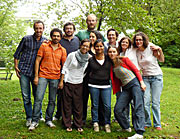- News
- Science
- Scientific Bodies
- Divisions
- Commissions
- Commission A1 Structure
- Commission A2 Structure
- Commission A3 Structure
- Commission A4 Structure
- Commission B1 Structure
- Commission B2 Structure
- Commission B3 Structure
- Commission B4 Structure
- Commission B5 Structure
- Commission B6 Structure
- Commission B7 Structure
- Commission C1 Structure
- Commission C2 Structure
- Commission C3 Structure
- Commission C4 Structure
- Commission C5 Structure
- Commission D1 Structure
- Commission E1 Structure
- Commission E2 Structure
- Commission E3 Structure
- Commission E4 Structure
- Commission F1 Structure
- Commission F2 Structure
- Commission F3 Structure
- Commission F4 Structure
- Commission G1 Structure
- Commission G2 Structure
- Commission G3 Structure
- Commission G4 Structure
- Commission G5 Structure
- Commission H1 Structure
- Commission H2 Structure
- Commission H3 Structure
- Commission H4 Structure
- Commission J1 Structure
- Commission J2 Structure
- Commission J3 Structure
- Commission X1 Structure
- Commission X2 Structure
- Past Commission Organising Committees
- Working Groups
- Centres
- Scientific Meetings
- Rules & Guidelines
- General Assemblies
- Meeting Proposals
- Future IAU Meetings
- General Assemblies
- EC Meetings
- Officers' Meetings
- Regional Meetings
- Symposia
- Focus Meetings
- Institutional Meetings
- IAU Offices Meetings
- IAU-Sponsored Meetings
- Letters of Intent submitted for 2024
- Letters of Intent submitted for 2023
- Letters of Intent submitted for 2022
- Letters of Intent submitted for 2021
- Letters of Intent submitted for 2020
- Past IAU Meetings
- Templates
- Other Meetings
- Grants & Prizes
- Scientific Bodies
- Publications
- IAU Publications
- IAU Strategic Plan
- Symposia
- WGSBN Bulletins
- Regional Meetings
- Information Bulletins/Catalyst
- E-Newsletters
- Focus Meetings
- Transactions A
- Transactions B
- Related Publications
- GA Newspapers
- CAPjournal
- IAU Books
- Brochures
- IAU Offices
- WG Reports
- Commission Reports
- Division Reports
- Past IAU Publications
- Rules, Guidelines and Instructions for Proceedings
- Publishers
- IAU Publications
- Administration
- About the IAU
- Statutes & Rules
- IAU Policies
- IAU Executive Bodies
- IAU Secretariat
- Resolutions
- Members Administration
- Administrative Dates & Deadlines
- International Organisations Relations
- Donate to the IAU
- Training in Astronomy
- Astronomy for Education
- Astronomy for Development
- Astronomy for the Public
- Office for Astronomy Outreach
- FAQ
- Themes
- Satellite Constellations
- Astronomy in Everyday Life
- How to Report a Discovery
- Careers in Astronomy
- Defining our Place in the Cosmos
- The Constellations
- Light Pollution
- Measuring the Universe
- Near Earth Objects
- How to Participate in Astronomy Research
- Naming of Astronomical Objects
- Naming of Exoplanets
- Buying Star Names
- Naming Stars
- Pluto and the Solar System
- IAU Member Statistics
- Our Moon: the Moon
- Meteors & Meteorites: The IAU Definitions of Meteor Terms
- UNESCO-IAU Portal to the Heritage of Astronomy
- Social Media
- Past Events
- Call for Online Resources
- Astronomy@Home Awards
- Contact
iau0920 — Press Release

5 October 2009, Paris
The GalileoMobile starts its South American voyage: astronomy education goes on tour through the Andes Mountains
Today marks the beginning of the GalileoMobile Project, a two-month expedition to bring the wonder and excitement of astronomy to young people of Chile, Bolivia and Peru. A group of astronomers and educators will travel through a region of the Andes Mountains aboard the GalileoMobile, offering astronomical activities, such as workshops for students and star parties for the general public. Professional filmmakers on the trip will produce a multilingual documentary capturing the thrill of discovery through science, culture and travel.
The GalileoMobile is a Special Project of the International Year of Astronomy 2009 (IYA2009), which is a global celebration commemorating the first use of a telescope to view the Universe by the Italian astronomer Galileo four hundred years ago. The GalileoMobile Project will promote basic science education through astronomy by visiting schools and communities with limited access to outreach programmes. The GalileoMobile will provide these underserved groups with hands-on activities and educational material from international partners. The van is fully equipped to offer unique sky-observing opportunities for young students and other locals, with star parties at night and solar observations during the day. The team will use various tools including IYA2009's handy Galileoscopes, which will be donated to the schools after the visits. By stimulating curiosity, critical thinking and a sense of wonder and discovery for the Universe and our planet, the GalileoMobile Project aims to encourage interest in astronomy and science, and exchange culturally different visions of the cosmos.
Spearheading the initiative is a group of enthusiastic Latin American and European PhD students from the European Southern Observatory, the Max Planck Society, the University Observatory Munich and NORDITA. This itinerant educational programme is intended to reach about 20 000 people during eight weeks in October and November 2009, and will cover 5000 kilometres. The voyage will largely take place across the Altiplano, or high plateau, shared by Peru, Bolivia and Chile, which is among the poorest regions in these countries.
The Andes Mountains in South America were particularly chosen for the GalileoMobile Project for several reasons. IYA2009 already has a strong presence in the region through national contacts, and also three Cornerstone IYA2009 projects: Developing Astronomy Globally, Universe Awareness and the Galileo Teacher Training Programme, which are all official partners of the project. Most people in Peru, Bolivia and Chile speak the same language, Spanish [1], and have a rich astronomical heritage dating back to the pre-Columbian Inca and Tiwanaku civilisations that lived on the Altiplano. The region's high elevation and the quality of its skies for astronomical observations also made it an attractive candidate for the maiden voyage of the GalileoMobile.
The journey starts today in Antofagasta, Chile, heads north through La Paz in Bolivia and on into Peru. The GalileoMobile then returns to Antofagasta via the Panamericana coastal road, and passes near the home of ESO's world-class observatory, the Very Large Telescope at Cerro Paranal.
"The GalileoMobile is a fantastic project, and a unique opportunity to reinforce astronomy education in Peru, Bolivia and Chile", says Catherine Cesarsky, Chair of the IYA2009 Executive Committee Working Group. "We are extremely happy to have GalileoMobile as part of the global celebration of IYA2009."
To chronicle this remarkable astronomy expedition, members of the GalileoMobile team will write entries for the GalileoMobile blog and Cosmic Diary, an online blog-cum-journal that is also an IYA2009 Cornerstone project, and run a Twitter feed and a Facebook page. The team will reach out to national newspapers, websites and television stations during the tour, and will be accompanied by a film crew who will produce a multilingual documentary of the expedition.
Project Coordinator Philippe Kobel concludes: "We hope that, by showing the excitement of astronomical discovery, and the diversity and richness of the South American traditions, the GalileoMobile Project will encourage a feeling of ‘unity under the same sky' between people of different cultures and backgrounds."
The GalileoMobile is supported by the European Southern Observatory (ESO), whose host country is Chile and which is the seat of the International Year of Astronomy 2009 (IYA2009) Secretariat, the Max Planck Society (MPG/MPE/MPA/MPS), NORDITA, Regione Molise and the Optical Society of America.
Links
- GalileoMobile website: http://www.galileo-mobile.org/
- GalileoMobile blog: http://galileomobile.wordpress.com/
- The GalileoMobile team: http://www.galileo-mobile.org/node/6
- The collaborators: http://www.galileo-mobile.org/node/26
- GalileoMobile Twitter feed: http://twitter.com/galileomobile
- GalileoMobile Facebook page: http://www.facebook.com/search/?q=galileomobile
- GalileoMobile photo gallery: http://www.flickr.com/photos/galileomobile
- IYA 2009 official website: www.astronomy2009.org
Notes
[1] To facilitate access to remote sites and foster the communication and translation in native non-Spanish languages, such as Quechua and Aymara, local university students or education officials will join the GalileoMobile team from time to time.
The vision of the IYA2009 is to help the citizens of the world rediscover their place in the Universe through the day and night-time skies the impact of astronomy and basic sciences on our daily lives, and understand better how scientific knowledge can contribute to a more equitable and peaceful society.
The aim of the IYA2009 is to stimulate worldwide interest, especially among young people, in astronomy and science under the central theme‚"The Universe, Yours to Discover". IYA2009 events and activities will promote a greater appreciation of the inspirational aspects of astronomy that embody an invaluable shared resource for all countries.
The IYA2009 activities are taking place at the global and regional levels, and especially at the national and local levels. National Nodes in each state have been formed to prepare activities for 2009. These Nodes establish collaborations between professional and amateur astronomers, science centres, educators and science communicators in preparing activities for 2009. The International Year of Astronomy was proclaimed by the United Nations on 20 December 2007.
For more information
Philippe Kobel
Galileomobile Project Coordinator
Tel: + 41 76 417 23 91
E-mail: kobel@mps.mpg.de
Further contacts
Pedro Russo
IYA2009 Coordinator
ESO ePOD, Garching, Germany
Tel: +49 89 320 06 195
Cellular: +49 176 6110 0211
Fax: +49 89 320 23 62
E-mail: prusso@eso.org
Yolanda Berenguer
UNESCO Focal Point for the International Year of Astronomy 2009
UNESCO HQ, Paris
Tel: +33 1 45684171
E-mail: y.berenguer@unesco.org
Ian Corbett
General Secretary, International Astronomical Union
IAU Secretariat, Paris, France
Tel: +33 1 43 25 83 58
E-mail: icorbett@eso.org
Lars Lindberg Christensen
IAU Press Officer
ESO ePOD, Garching, Germany
Tel: +49 89 3200 6761
Cellular: +49 173 3872 621
E-mail: lars@eso.org

